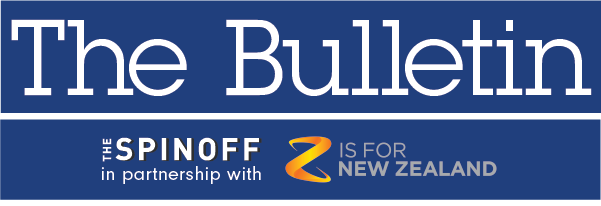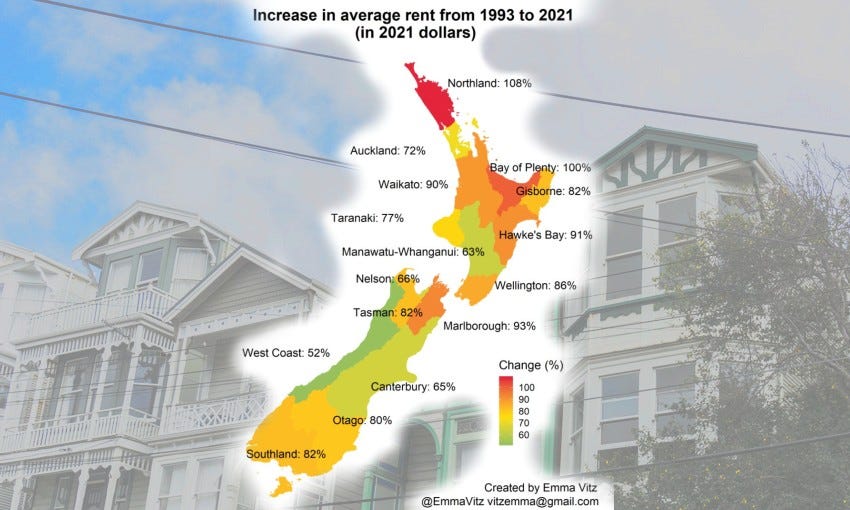NZ throws in with Five Eyes, alleging Chinese hacking
The allegation firmly ties New Zealand alongside other Western countries
Good morning and welcome to The Bulletin for Tuesday 20 July, by Alex Braae for The Spinoff. Presented in partnership with Z Energy.
In today’s edition: NZ joins allies in alleging Chinese hacking, stats on inflation show big rise, and immigration tribunal rejects deportation to India on Covid grounds.
Image: GCSB minister Andrew Little (Getty Images)
In a release late last night, GCSB minister Andrew Little said the agency had established links between a Chinese state-sponsored hacking group and malicious activity in NZ. Radio NZ reports the group – Advanced Persistent Threat 40 – also stands accused of attacks in Britain. "We call for an end to this type of malicious activity, which undermines global stability and security, and we urge China to take appropriate action in relation to such activity emanating from its territory," said Little. The statement was coordinated alongside one from US president Joe Biden, other Five Eyes countries, the European Union, and Japan.
This appears to be a pretty significant moment in the direction of travel for New Zealand's international relations. Richard Harman at Politik speculated in a report that knowledge this was coming up is what led the government to warn exporters they could face trade disruption, similar to what is being experienced by Australian exporters at the moment. The bind NZ is now in was illustrated in this recent Radio NZ story about export growth to China, in which a foreign policy expert said it had been clear for at least a decade that a moment like this was coming.
The stats on inflation came out on Friday, and they show it running ahead of any time over the past decade. As the NZ Herald reports, a lot of that was driven by increased housing and petrol costs. The spike increases the chance the Reserve Bank will start moving interest rates up earlier – perhaps as soon as next month. Some are also seeing the risks of "stagflation" developing. As Interest's David Hargreaves writes, "there is a risk then that our economy could rapidly lose heat and impetus, but prices would stay up. And that would be horrid. That would be stagflation."
The Immigration and Protection Tribunal has ruled an Indian man cannot be deported right now, because it would be inhumane to send him back to a country ravaged by Covid. Stuff's Steve Kilgallon reports former immigration minister Tuariki Delamere believes this could be a precedent-setter, making deportations generally much less likely. Immigration NZ has rejected this, saying the ruling will not make them change their approach.
We’re hard at work. But we can’t do this without the support of our members. Support our mission to do more by donating today.
A big shipment of the Covid-19 vaccine arrived early yesterday, putting the rollout on somewhat safer footing. Our live updates reports 370k Pfizer doses were delivered two days ahead of schedule, which Covid minister Chris Hipkins said was the result of "dedicated work". Meanwhile, the drug used against RSV is in short supply after the spate of cases.Radio NZ reports demand for Prednisolone is near twice that of normal, which will primarily affect those trying to get the drug from pharmacies. Pharmac is currently trying to get more stocks delivered.
When will the much delayed Transmission Gully actually open? It's meant to be at the end of September, but as this analysis from the NZ Herald's Georgina Campbell notes, confidence in that appears to be slipping. There's still plenty of work needing to be done, in wintry conditions not necessarily suitable for construction, and regulators will need to sign it all off at the end.
About a quarter of Westport residents still can't go back to their homes, and some could be waiting months, reports Newshub after the flooding through the town. Emergency shelters are currently being used, and authorities are still working through what the medium-term housing options look like. Michael Andrew spoke to a local business owner, who talked about the fact that Westport is in a particularly vulnerable location, and questions needed to be asked about whether it would be safe in the future.
On the subject, I want to add a bit of weight to a comment made in yesterday's Bulletin, about the spate of floods and climate change. The Science Media Centre collected reaction from the scientific community to the event, emailing them out to journalists, and this particular comment from Dr Judy Lawrence of the Climate Change Research Institute jumped out:
"We seem deaf and blind to the science and the tools and methods for planning that we have available to address these risks. How much disruption can communities take before planning kicks in to reduce risks and plan for more of the extreme events and ongoing changes like sea level rise, which exacerbate hazards already being felt?
Got some feedback about The Bulletin, or anything in the news?
Get in touch with me at thebulletin@thespinoff.co.nz
Right now on The Spinoff: David Farrier writes about going to the US for work, and now spending every day refreshing the MIQ booking page to get a booking home. Emma Vitz looks at the data showing renting New Zealanders are spending much more for increasingly poor homes. Justin Latif reports on the tactics used to get Ōtara a new playground. Peter McKenzie writes about a New Zealand photographer making actual money from NFTs. Alex Casey sits down and scrolls through the Mad Butcher's remarkable breakfast selection on Instagram. And I review the first four hours of the new sports radio station SENZ.
For a feature today, another piece from one of the better Substacks about ideas, media and the internet. Australian journalist Josh Hennessey has written on The Terminal about the declining art of arguing on the internet, and how such arguments have become a lot less enjoyable to watch play out. Here's an excerpt:
Nowhere was this more obvious than the debate about Sweden, which set itself apart early in the pandemic by avoiding hard lockdowns. As such, it instantly became fodder for endless arguments, with people online (very few of whom either lived in Sweden or in a country much comparable to it) picking apart every single update or death count to find ammunition to bolster their argument in some Covid argument or another. Both sides of the lockdown debate had at various points reason to invoke the Swedish example, and then, when the data had become too cloudy and the situation too complex to really extract any truly meaningful conclusion, it was dispensed with entirely.
You got the overwhelming sense that few really believed there were necessarily actionable policy lessons from the Swedish example for their own country, or that those lessons would ever be implemented in their own countries — just that it was something that could be fed into the online culture war thresher with minimal resistance. It is argument as a numbers game — a sport, but not one where anyone’s having a good time.
The playoffs are sorted for the ANZ Premiership, and the previously dominant Northern Stars have been bundled out. Stuff reports they lost to the Steel in a brutally close game, which meant that despite the Stars being top of the table for most of the season, they lost their place when it mattered. The elimination final will now be a South Island derby between the Tactix and the Steel, with the winners to play the Northern Mystics in the grand final.
That's it for The Bulletin. If you want to support the work we do at The Spinoff, please check out our membership programme.







